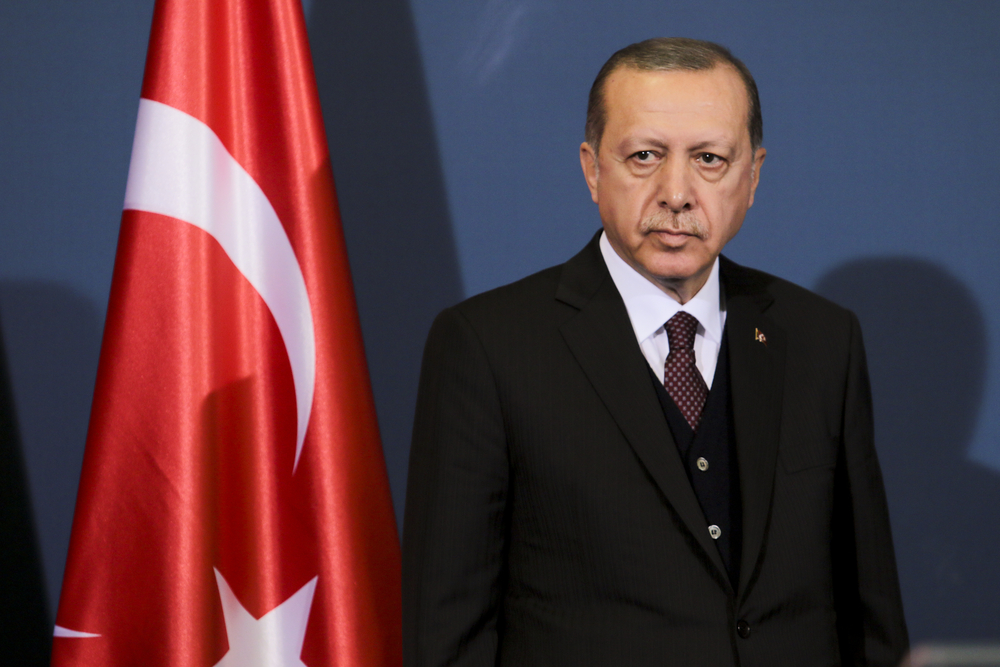There have been growing tensions between Turkey and Israel during the last few years, over Palestinian issues and rivalry over energy resources in the Eastern Mediterranean. These tensions may soon be overcome, in view of the countries’ mutual interest in cooperating to supply Europe with natural gas, as it moves to reduce then end dependency on Russia in that respect. Turkish President Recep Tayyip Erdogan declared last March that cooperation regarding natural gas was among the most important steps Turkey and Israel could take to improve relations. He also noted that Israeli Prime Minister Naftali Bennett might visit Turkey in the coming period, which would launch a new phase in relations between the two countries. Indeed, relations between Ankara and Tel Aviv have undergone a qualitative shift in the face of the escalating Ukrainian crisis, and growing efforts to replace energy supplies from Russia. A turning point came with Israeli President Yitzhak Herzog’s visit to Turkey on the 9th of March, as it paved the way for enhanced cooperation in the energy sector.
In this context, Turkish Energy Minister Fateh Donmaz held a meeting with his Israeli counterpart Karen Al-Harar on 23 March, in which they discussed issues of common interest.
In addition to the Israeli President ‘s visit, which President Erdogan described as “one of the most important recent visits of world leaders to Turkey”, Israeli Prime Minister Naftali Bennett is expected to make a visit to Turkey soon. President Erdogan also announced that he would schedule a visit to Israel by Turkey’s Foreign Affairs, and Energy and Natural Resources Ministers to conduct an assessment on bilateral relations.
Turkish motivations
Turkey’s interest in strengthening cooperation with Tel Aviv, particularly in the energy sector, can be explained by four main considerations:
- Turning into an energy transport hub: Turkey sees the crisis between the West and Russia as an opportunity to become a conduit for transporting Israeli gas to European markets. Turkey was thus seeking to raise the level of coordination with Israel mainly for this purpose.
- Reducing tensions with Washington: Reconciliation with Tel Aviv is inseparable from Turkey’s desire to reduce tensions with the US, and increase coordination on political and field developments in Ukraine, that have become a priority on American and Western agendas. Maintaining strong relations with Israel is compatible with Turkey’s interest in expanding its margin of maneuverability, as it has refused to participate in Western sanctions imposed on Russia and seeks to maintain economic and political relations with Moscow. This is important in view of the increasing likelihood that Ankara will become a haven for Russian businessmen, seeking to avoid western sanctions.
- Improving relations with Europe: The European Union’s move towards ending its reliance on Russian energy provides an opportunity to reform Turkish-European relations on the one hand and obtain broad European support to transport Eastern Mediterranean gas to Europe through Turkish territory on the other. To this end, Turkey has also reduced pressure on European States regarding the issues of refugees, which Turkey has used in the past to put pressure on Europe regarding issues of contention.
- Reducing tensions in the Eastern Mediterranean: Cooperation on energy projects with Tel Aviv could help reduce Israeli objections to Turkish energy exploration in the Eastern Mediterranean. It could enhance Turkey’s chances of becoming a major player in the Eastern Mediterranean, and a strategic passageway for global energy supplies.
In this context, reconciliation with Israel, in Ankara’s vision, could help redraw alliances in the Eastern Mediterranean, a major strategic priority for Turkey, especially since Tel Aviv is one of Greece’s most important backers in its differences with Turkey over the exploitation of energy sources in the region.
In conclusion, it can be argued that rapprochement with Israel at this stage is a priority for Turkey, as efforts to reduce European dependency on energy imports from Russia provide an opportunity for Turkey to establish itself as an energy hub. The US, keen to end European imports of Russian energy is likely to encourage Europe and Turkey to overcome their differences and cooperate in this respect.


